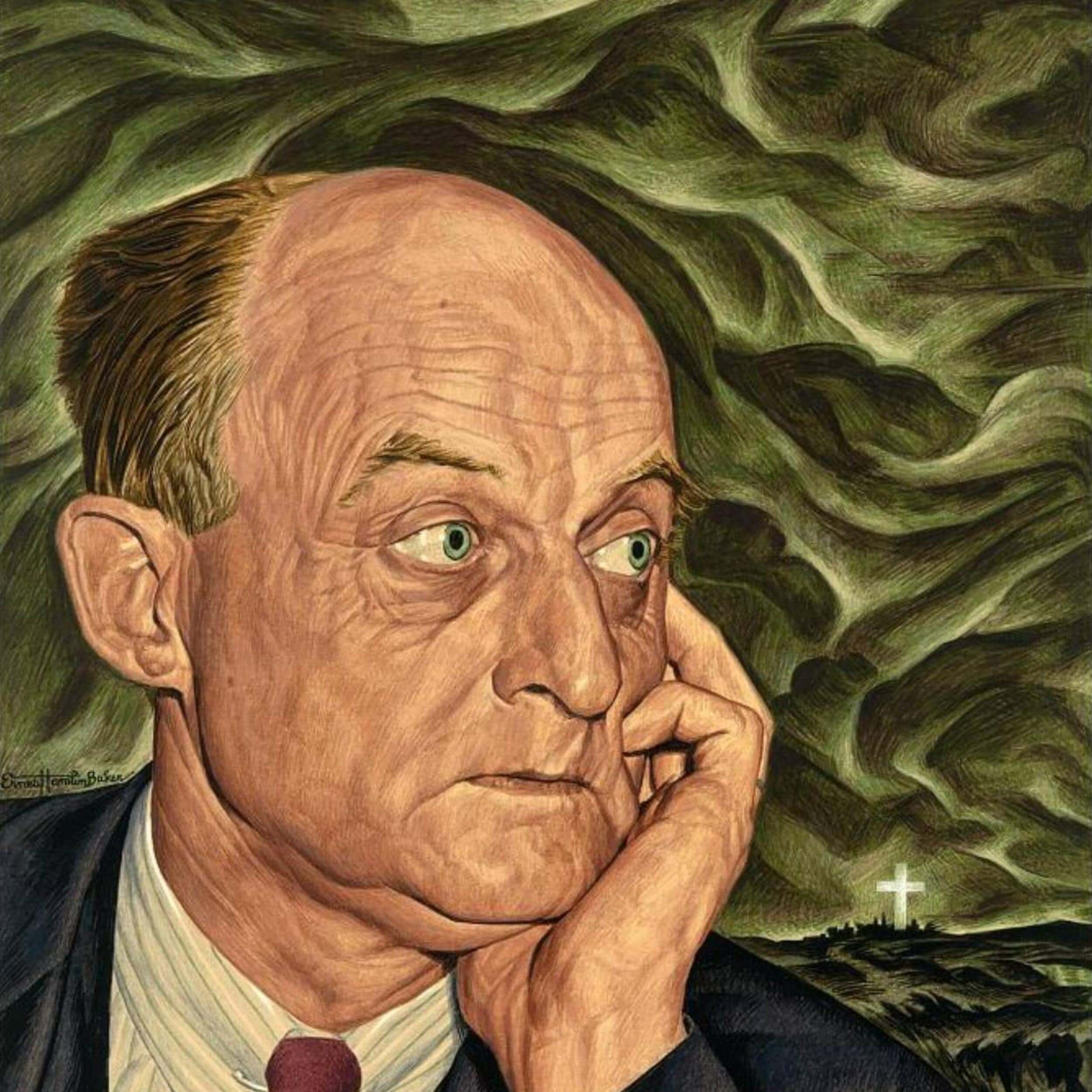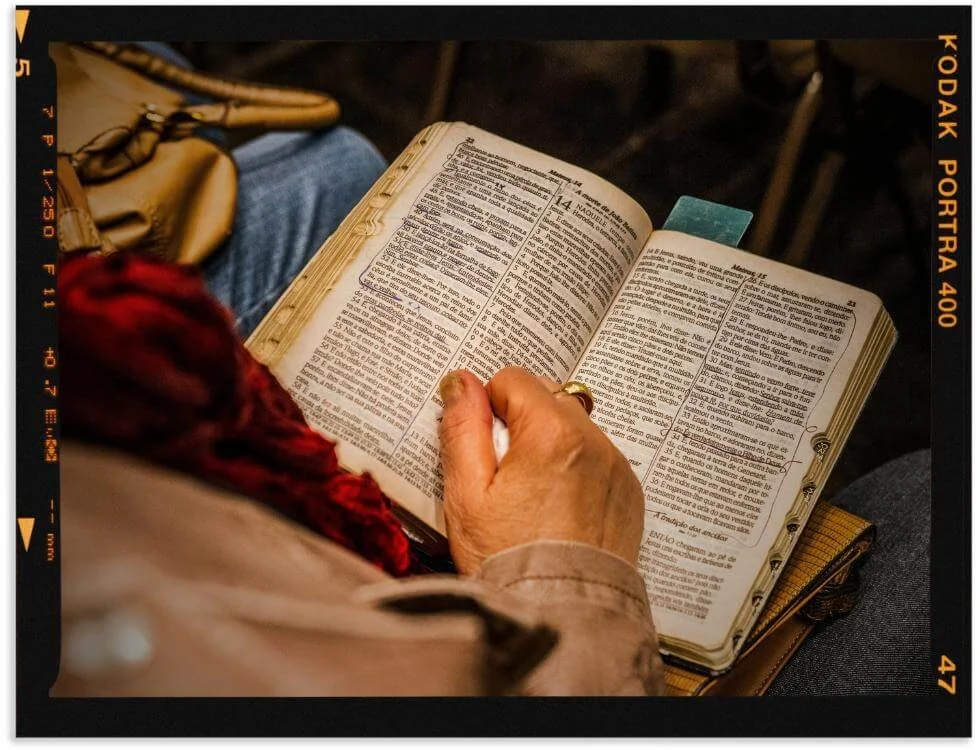

Ignatian Exercises: Keeping Company With Jesus
Five years ago, Jenn and I set out to pray an hour a day for 34 weeks — the Ignatian Exercises. We didn’t know what we were getting into, only that we longed for something real with Jesus. What we found wasn’t religion or ritual, but relationship — keeping company with him. Listening. Speaking. Healing. Becoming the people he always meant us to be.

What Is Prayer?
Prayer is not self-expression but transformation. A way of being reshaped into the likeness of Jesus. Unlike mindfulness, which turns us inward, prayer lifts us upward to God and outward in love. We come with praise, confession and petition. We rely on the Son’s name, trust the Spirit’s groans and receive the Father’s presence. Prayer is communion. It’s dwelling with God until our hearts echo his.

When Life Becomes Prayer
There’s a kind of prayer that doesn’t require silence or structure. It doesn’t follow a guide or wait for the right moment. It just happens — while you’re driving, making coffee, walking the dog. It’s unfiltered, constant conversation. And somehow, in the middle of the ordinary, you realize you’re not alone. Your whole life becomes prayer — unpolished, unplanned and full of God.

Prayer: The Significance of Talking to God
Prayer isn’t performance. It’s not a ritual to earn blessings or a checklist to stay in God’s good graces. It’s a returning home. It’s how we live aware of God — through whispers, groans or silence. Whether we feel him or not, he listens. And when we pray, we’re changed — drawn out of self-reliance and into communion with the One who sustains us.

Prayers of Hope For Peace Over Your Thoughts
Prayer changes things — especially us. When we bring our worries, regrets and need for control to Jesus, he doesn’t just listen — he leads. His peace moves in quietly, clearing out the noise, shifting our thoughts toward truth. The world may still be spinning, but deep inside, we’re anchored. That’s the power of communion with God. Not flashy, not loud. Just steady. Just holy. Just enough.

Sacred Rhythms: Harmonizing Work and Prayer
We’re called to hold work and prayer in healthy tension. Sabbath rest, spiritual practices and space for God aren’t luxuries. They’re the foundation for faithful, fruitful living.

Reinhold Niebuhr: The Serenity Prayer and Its Backstory
You’ve seen it on mugs and magnets: God grant me the serenity… But Reinhold Niebuhr’s original version was grittier — not just serenity, but grace. Not just change what can be changed, but what should. And it wasn’t “grant me” — it was “grant us.” Theologian, activist, realist — Niebuhr gave us a prayer for courage and community, rooted not in certainty, but in grace.

God, Are You Even Listening?
When God doesn’t answer, it can feel like he’s left the building. You’ve prayed, waited, knocked and nothing. But silence isn’t absence. Scripture says he hears before we even finish asking.

Lent In America
Lent is here, but for most Americans, it’s barely a blip on the radar. Around a quarter observe the 40-day season of fasting and preparation before Easter, while most do not. Those who participate often fast from food, habits or activities — but for many, Lent isn’t about rules. It’s a time to refocus their hearts on Christ through prayer, generosity and devotion.

Can Prayer Help Those Who Are Sick?
When illness strikes, prayer often becomes a lifeline. But does it change outcomes? Scripture promises healing, yet not everyone who prays gets well. Some experience miracles, while others find peace rather than a cure. What does science say? And how does faith shape the way we endure suffering? A closer look at prayer, healing, and the mystery in between.

Come Pray for the Persecuted
Christians around the world are pausing this November to pray for those suffering persecution for their beliefs. At a gathering in Dallas, prayers went beyond Christian communities to include Uyghur Muslims, Yazidis, and Baha’is facing oppression. Rooted in Jesus’ call to love our neighbors, this movement is sparking bold advocacy across faith lines, lifting up the persecuted with prayer and action wherever their struggles are found.

Praying for the Impossible
What’s on your heart that feels too big to pray for? Grief and loss often leave us hesitant, yet impossible prayers open the door to God’s unexpected grace.

What’s It Like Inside a Trappist Monastery?
What does life inside a Trappist monastery offer to those of us on the outside? In “A Matter of the Heart,” Brother Paul Quenon shares over 50 years of journal entries from his quiet life of prayer and contemplation. With a poet’s touch, he reflects on life’s mysteries and a spiritual calling shaped by solitude, stillness and the pursuit of inner peace — insights that resonate well beyond the cloister.

Fasting: Intentional Wonderful Dependence
Fasting is often misunderstood in today’s world, viewed as outdated or extreme. Yet, Scripture presents it as a powerful way to deepen our connection with God. By focusing on the spiritual significance of fasting, we can strengthen prayer, align our hearts with God’s will and experience transformation. This ancient discipline, though often overlooked, remains just as relevant for believers today.

Goldfish and The Role of Prayer
Prayer is more than a ritual; it's a lifeline, connecting us to a God who already knows us inside out. No matter where we are or what’s going on, He sees us — like goldfish in a bowl, with nowhere to hide. Prayer isn't about being good at it; it's about humility, honesty and aligning our hearts with God's. So why do we often hold back from talking to the One who’s always listening?

Fixed-Hour Prayer: A Different Way to Pray
In any form of prayer, there is an upward dimension of communing with God. When we pray, we “seek to communicate with the Eternal One, speaking words of adoration, confession, thanksgiving and supplication.” This is no different in fixed-hour prayer, and I would argue that in some ways, the upward dimension is enhanced by the practice.

Worship: Encountering the Person of God
Perhaps all of us would agree that worship must be directed to God alone, for nothing else is worthy of worship. But this simple, obvious idea has far-reaching implications that we may not fully realize. To draw out these implications, we begin with an analysis of our present practice, followed by an attempt to refine the concept of worship and conclude with some suggestions for improving our worship.

The Daily Office: Morning and Evening Prayer
The Daily Office is an ancient practice that uses daily prayers to mark the times of the day. For Anglicans, this generally comes in the form of the two main offices of Morning Prayer and Evening Prayer. Together, these prayers offer a way to shape our days and remind us who we are — created, known, and loved by God, people whose work is prayer. They allow us to move closer to Scripture’s encouragement to “pray without ceasing.”

How to Pray When Wrestling With Anxiety
According to the National Institute of Mental Health, 19.1% of U.S. adults have had an anxiety disorder in the past year—and 31.1% have had one at some point in their lives. This method of praying not a magic wand. It may not replace anti-anxiety medication. But boy, it does help. If you’re a fellow anxiety sufferer, try this. It can’t hurt you. It has no unpleasant side effects. It may do you great good.
